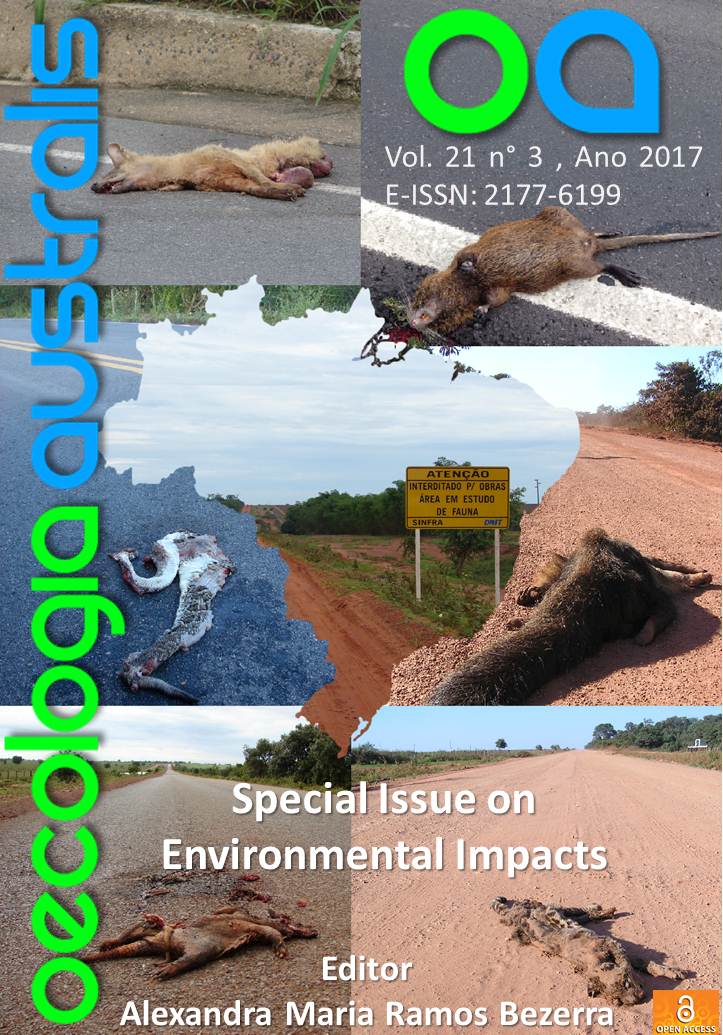GUIDELINES FOR CONSIDERATION OF BATS IN ENVIRONMENTAL IMPACT ASSESSMENT OF WIND FARMS IN BRAZIL: A COLLABORATIVE GOVERNANCE EXPERIENCE FROM RIO GRANDE DO SUL STATE
DOI:
https://doi.org/10.4257/oeco.2017.2103.02Palavras-chave:
Chiroptera, environmental licensing, renewable energy, sustainable development, wind energyResumo
In recent years Brazil has become the third largest market for new investments in wind power in the world. Though a change in the national policy towards more sustainable energy sources is desirable, wind energy is not free from negative impacts. According to studies done in the temperate region, bats are negatively affected by wind farms, due to fatalities resulting from direct collision with the turbines or from barotrauma. If in many countries national and international laws follow guidelines for consideration of potential impacts of wind farms on bats, and even consider potential minimization and mitigation schemes, the Brazilian current normative for wind farm licencing presents vague approaches on this matter. With a few exceptions, states are the main responsible for the licencing processes. In this context, a joint initiative in Rio Grande do Sul, the state with the third highest wind power generation in Brazil, put together the Secretary of State for the Environment and Sustainable Development of Rio Grande do Sul, the Federal University of Rio Grande do Sul, and the Brazilian Society for the Study of Bats to set reference terms for consideration of bats in impact assessments of wind farms in the state. Consensus was built from a collaborative process resulting from a two-day workshop involving technicians and academics with expertise in bat biology, conservation and management. Guidelines were divided into pre-installation, construction, and operation phases, considering the decisions to make, potential impacts and relevant questions to answer, methodological and technical recommendations or constraints, and current gaps in knowledge. Here we describe this collaborative experience hoping it can be replicable in other Brazilian states and used by other potentially impacting sectors. With few adaptations and considering specificities in the regional bat fauna and environmental conditions, the proposed reference terms can be used elsewhere in Brazil.


